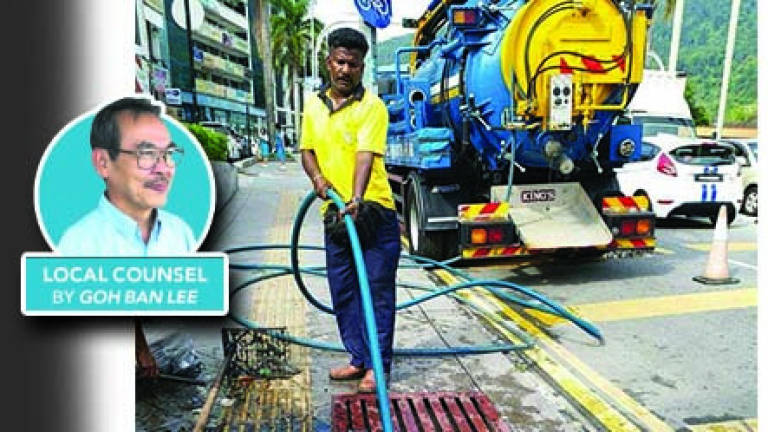Chasing the clean cities dream

HUMAN beings want to live in a clean and healthy environment. They not only keep their houses and apartments clean, they also pay local councils assessment rates to enable them to have adequate infrastructure and workers to keep the cities or towns clean, pleasant and attractive.
Even without a thorough study, it is fair to say that Malaysian towns and cities are not clean. It is, therefore, not surprising that Malaysian cities are not listed in the 25 Cleanest Cities in the World published last Oct 4.
According to Petr H., the 10 cleanest cities are Hamburg (Germany), Chicago (US), Copenhagen (Denmark), Honolulu (US), Helsinki (Finland), Reykjavik (Iceland), Vienna (Austria), Geneva (Switzerland), Curitiba (Brazil) and Singapore.
The rest of the 25 cleanest cities are Calgary (Canada), Luxembourg City (Luxembourg), Kobe (Japan), Nottingham (UK), Stockholm (Sweden), Portland (US), Brisbane (Australia), Amsterdam (Netherlands), Toronto (Canada), Freiburg (Germany), El Hierro (Spain), Oslo (Norway), Ifrane (Morocco), Wellington (New Zealand) and Zurich (Switzerland).
Most of the cleanest cities are in Europe. Although not the biggest continent, Europe has 14 cities out of 25 clean cities on the list.
It may be expecting too much to expect George Town or any city in Malaysia to be among the 25 cleanest cities in the world. After all, only two cities are from Asia, the biggest continent in the world and two from Australia. Africa and South America have only one city each on the list.
Since none of the 12 Malaysian cities are in the list of 25 cleanest cities in the world, it is time for the chief ministers, mentris besar and mayors and the public to put in extra effort to ensure that the cities improve their standards of cleanliness.
So far, not much is known about the workings of the local councils in Malaysia. Making things worse, the local councillors, including presidents and mayors, do not have to explain to the ratepayers what has been done and what will be done to keep the cities among the best in the world. They do not have to campaign to win elections because Malaysia did away with local government elections about 51 years ago.
The mayors, presidents and councillors do not have to ensure that the ratepayers of the cities are happy with the working of the local councils. As Malaysian local council presidents or mayors and councillors are not elected, they do not have to get the support of the ratepayers. They only need to ensure that they are in the good books of the chief ministers or mentris besar.
It is useful to recall an episode in 1997 when the then prime minister, Tun Dr Mahathir Mohamad, was angry and embarrassed to see dirty scenes in Kuala Lumpur when he was accompanying Pakistani Prime Minister Nawaz Shariff to a posh shopping centre in Bukit Bintang.
Mahathir was so annoyed by the sight of rubbish-strewn pavements that he was quoted in the newspapers saying, "If you want to dirty a place, do it at home. Don't you know how to take care of the city's cleanliness? You can just walk along a street and see what it looks like. Malu kita ... We do not care if you just want to sit around and have a good time, but you should not throw rubbish anywhere you like".
Datuk Seri Abdullah Ahmad Badawi, on his first day as the acting prime minister, gave his frank observation that Malaysians suffered from a malaise called "First World infrastructure and Third World mentality". His message struck a chord in most Malaysians although government leaders were loath to admit any shortcomings.
According to Abdullah, "Building a better Malaysia means being better Malaysians".
However, are we better Malaysians now? Or, as we become more literate, we become less educated and civic-minded? We do not discard rubbish around our houses and compounds, but our streets, drains and rivers are visibly littered with rubbish, despite the fact that there have been many cleanliness programmes organised by the local authorities from as early as the 1990s.
The making of cleaner cities does not just lie in the hands of the local authorities. We must improve our civic sense and work hand in hand with the local councils to make it a success.
Datuk Dr Goh Ban Lee is interested in urban planning, housing and governance. Comments: letters@thesundaily.com